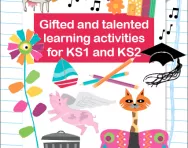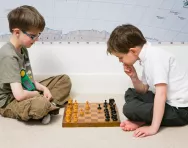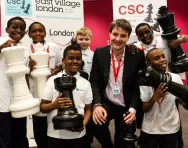Important update from TheSchoolRun
For the past 13 years, TheSchoolRun has been run by a small team of mums working from home, dedicated to providing quality educational resources to primary school parents. Unfortunately, rising supplier costs and falling revenue have made it impossible for us to continue operating, and we’ve had to make the difficult decision to close. The good news: We’ve arranged for another educational provider to take over many of our resources. These will be hosted on a new portal, where the content will be updated and expanded to support your child’s learning.
What this means for subscribers:
- Your subscription is still active, and for now, you can keep using the website as normal — just log in with your usual details to access all our articles and resources*.
- In a few months, all resources will move to the new portal. You’ll continue to have access there until your subscription ends. We’ll send you full details nearer the time.
- As a thank you for your support, we’ll also be sending you 16 primary school eBooks (worth £108.84) to download and keep.
A few changes to be aware of:
- The Learning Journey weekly email has ended, but your child’s plan will still be updated on your dashboard each Monday. Just log in to see the recommended worksheets.
- The 11+ weekly emails have now ended. We sent you all the remaining emails in the series at the end of March — please check your inbox (and spam folder) if you haven’t seen them. You can also follow the full programme here: 11+ Learning Journey.
If you have any questions, please contact us at [email protected]. Thank you for being part of our journey it’s been a privilege to support your family’s learning.
*If you need to reset your password, it will still work as usual. Please check your spam folder if the reset email doesn’t appear in your inbox.
'My 3-year-old knew all his times tables'

Oliver was my first child, so I didn’t really think much of his abilities. It was only when I talked to other parents that I realised it wasn’t 'normal' for a three-year-old to know all his times tables.
Oliver went to a brilliant nursery who were amazed by his skills and were incredibly supportive.
At age four he was diagnosed with Asperger’s, or high functioning autism, which meant that his development was slightly skewed: although his academic skills were highly advanced, his social skills were 18 months behind the norm for his age.


Is your child ready to be stretched?
- Download Challenge Packs for your child
- Maths & English packs for each school year
- Encourage your child to work at a greater depth
Before Oliver went to primary school, we asked our local education authority to assess him for special educational needs. The educational psychologist he saw said that she was blown away by his abilities. He had a reading age of 13+, and was studying for a maths GCSE at the age of seven.
Oliver was allocated 15 hours of educational support every week, to encourage his ability and help with his Asperger’s. But our local primary school seemed unable, and at times unwilling, to address Oliver’s needs.
After a disheartening term of battles, which eventually ended with his teaching assistant refusing to talk to me, Neill and I made the decision to send Oliver to a private Montessori primary school. Although we had to make sacrifices to afford the fees, he was really happy there.
It can be difficult to be a parent of a child who is gifted and has special needs. It was hard when he asked, “Mummy, can you help me convert this decimal into a fraction?” or “What’s the Spanish for ‘glad’?” He learned so quickly that it was hard to keep up – but luckily he was good at reading and researching things himself.
We’ve always told Oliver that although his abilities are quite remarkable, virtually everyone has a special set of strengths (as well as challenges). We aim to support him in the same way that any parent supports their child – by listening to him and giving him time. We also try to give him the opportunity to pursue his interests; for example, we bought him a second-hand keyboard because he taught himself how to read music and wanted to play.
We spent quite a lot of time helping Oliver develop his social skills, which were affected by his Asperger’s. Gifted children often have problems fitting in with children their own age, so we made this a real priority.
Oliver is a perfectionist, like a lot of gifted children, so we also tried to help him understand that making mistakes helped him to learn.
I think the biggest battle for parents of gifted children is to make sure they are getting the best education for their child. Good communication between you and the school is vital. A gifted child who is bored will either switch off or become disruptive and waste their talents. It can be hard work – but it’s totally worth the fight.








